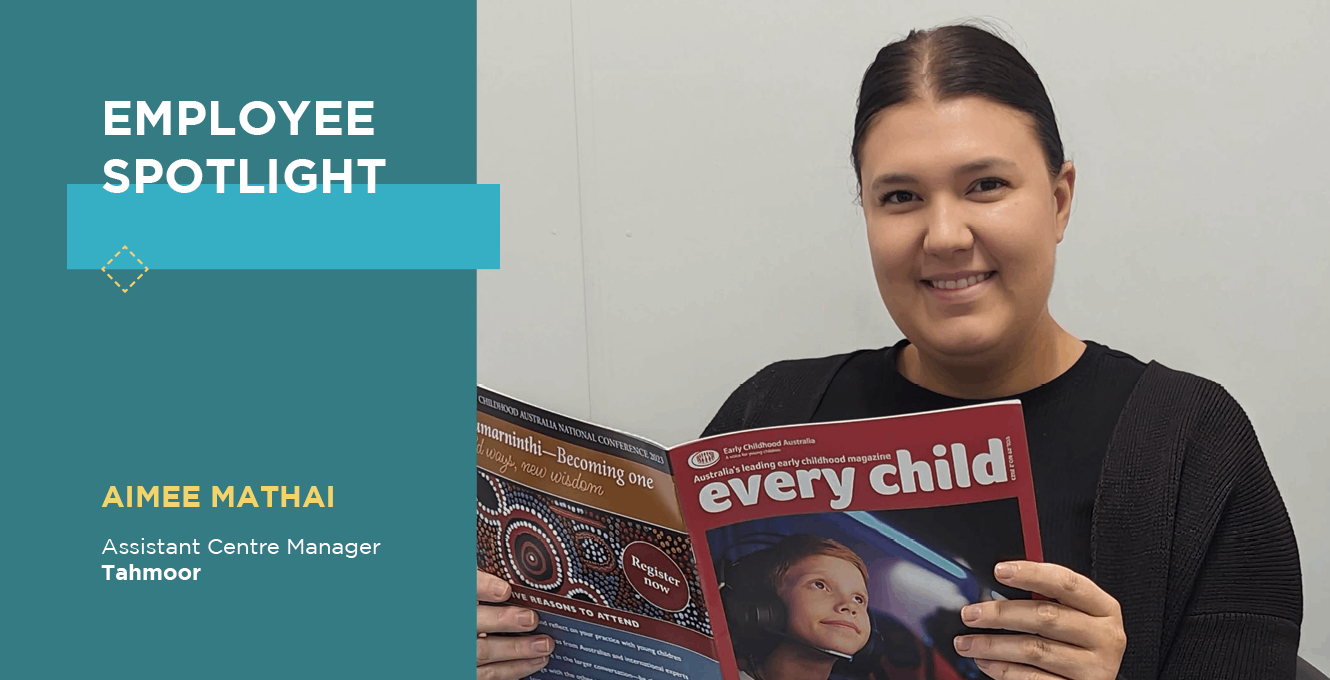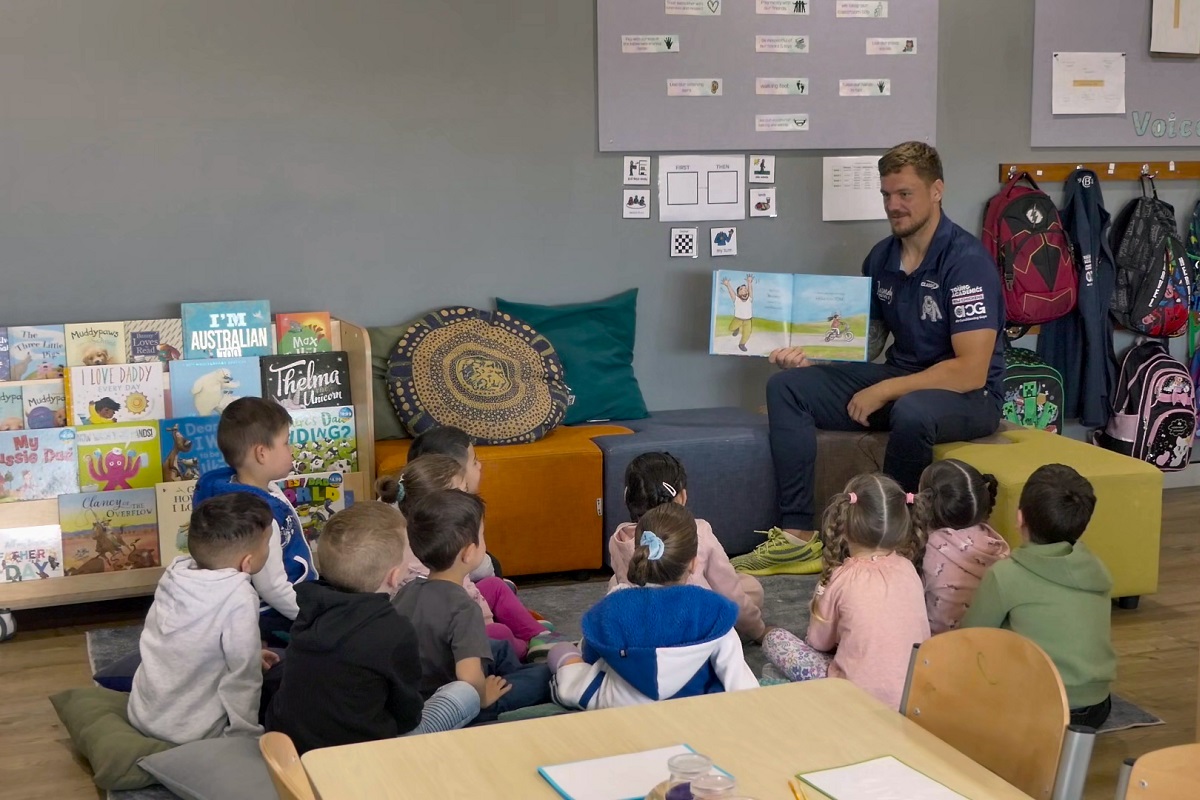ECA’s Communities of Practice (CoP) are a valuable resource for early childhood professionals to boost their professional development. Here Young Academic Early Learning Centre’s Aimee Mathai reflects on her participation in an ECA CoP on STEM in Early Childhood, which resulted in an Action Research Project (ARP) on how to implement STEM learning across multiple services.
Communities of Practice and Action Research Projects
Current educational trends and policy expectations are starting to be reflected in early childhood education and care (ECEC) settings. One area that has seen significant growth in ECEC is inquiry-based science, technology, engineering and mathematics (STEM) learning (Wang et al., 2020). Children’s participation in inquiry-based STEM learning has been identified as an indicator of intellectual and social development, and predicted future economic participation (Dilek et al., 2020). Fostering meaningful, inquiry-based STEM learning in ECEC settings therefore not only meets future social and economic needs, but also supports the individual long-term learning goals of children and their families. For ECEC professionals, a combination of prior experience and ongoing professional development (PD) helps identify opportunities to embed inquiry-based STEM learning. Engaging in PD opportunities that involve moderated, professional discussions with like minded practitioners, such as ECA’s Communities of Practice (CoP), has proven to be most effective in producing new knowledge (Perron et al., 2007). As shared, collaborative learning spaces, CoPs can build participants’ professional knowledge by providing new perspectives and challenging understandings through current research. The Action Research Project (ARP) component of an ECA CoP supports learning and enhances interpretations of sector knowledge. It also provides the ‘push’ for professionals to take a ‘step back’ and reflect on their current practices. The ARP process encourages CoP participants to critically reflect and focus on areas for improvement in their practice. It gives us the tools to create meaningful and effective changes to the way young children engage in their learning. The framework of an ARP is flexible and can be adapted to meet the needs of all ECEC services and professionals. In general, it involves identifying a focus topic; opportunities to create a focus plan; time to act on the plan; and opportunities to observe and reflect (Miller, 2017).My journey with ECA’s CoP on STEM in Early Childhood
I joined ECA’s CoP on STEM in Early Childhood with the goal of supporting children’s inquiry-based learning through play. I used the ARP and a strengths, weaknesses, opportunities and threats (SWOT) analysis to identify how Young Academics’ current service-wide inquiry-based STEM learning could be adapted and improved. The ultimate aim was to create a STEM-based curriculum benefitting children aged six weeks to six years across multiple ECEC services. As discussion proceeded in the CoP, I was able to critically reflect on the creation of a holistic STEM-based curriculum. I considered how the curriculum could provide intentional learning opportunities that could be rolled out across multiple ECEC services. Within this supportive learning environment, I assessed the balance between meeting the social and economic drivers of STEM learning and fostering children’s holistic learning. The critical reflective process of the ARP worked in favour of this balance, ensuring children’s play opportunities remained at the centre of curriculum development. Using the ARP findings and strategies discussed with like-minded professionals in the CoP, I identified the most appropriate times to embed the inquiry-based STEM curriculum into our services’ weekly routines. It was decided that a term-based STEM curriculum might be more effective at fostering children’s learning. We also decided to support STEM-based inquiry through play-based experiences and by focusing on children’s individual interests. The ARP allowed for the simultaneous practical development of a term-based STEM curriculum trial at Young Academics. Our educators reviewed the draft curriculum to identify areas for improvement. We also revisited the SWOT analysis to ensure the proposed curriculum was inclusive and accessible to all children across multiple services. Soon after this, a specialised STEM curriculum delivery team implemented the inquiry-based STEM curriculum to all Young Academics services across multiple terms. The ARP reflective process enabled the team to ensure that each term’s curriculum both supports children’s leaning and aligns with the National Quality Framework and our company values and expectations. The STEM curriculum team developed an implementation guide for educators across services by combining their individual ARP focuses. As each service’s team took ownership of delivering a high-quality, inquiry-based STEM curriculum, the specialist STEM team were able to step away. However, the ECEC professionals in all services then implemented the CoP concept of peer learning to create their own ARP. This involved developing a plan to incorporate STEM into their weekly programs, create and observe the STEM program, and reflect on its effectiveness by assessing data such as children’s creative works. Thanks to the flexible structure of the ARP, observation and critical reflection are ongoing. Multiple reviews of the project will allow us to maintain a holistic and relevant STEM curriculum. Although the ARP began just over six months ago, it has already presented senior management and our educators with many opportunities for continuous improvement. Through documented observations, my journey with the ECA CoP on STEM in Early Childhood developed into a beautiful storytelling opportunity of young children thriving in areas of STEM—researching space, investigating natural sciences and physics, exploring new technology and new ways to communicate, and becoming comfortable with mathematical concepts.References:
Dilek, H., Tasdemir, A., Konca, A. S. & Baltaci, S. (2020). Preschool Children’s Science Motivation and Process Skills during Inquiry-Based STEM Activities. Journal of Education in Science Environment and Health, 6(3), 92-104. https://doi.org/10.21891/jeseh.673901 Perron, A., Reid, M., Reeves, D.B., Luke, A. & West, L. (2007). Teacher Moderation: Collaborative Assessment of Student Work. Toronto, Not: Curriculum Services Canada Li, Y., Wang, K., Xiao, Y. & Froyd, J. E. (2020). Research and Trends in STEM Education: A Systematic Review of Journal Publications. International Journal of STEM Education, 7(11), 1-16. https://doi.org/10.1186/s40594-020-00207-6 Miller, M. (2017). Action Research: The Benefits for Early Childhood Educators. Belonging Early Years Journal, 6(3), 26-29.This article was published in Every Child magazine Vol. 29 No. 2 2023. It appears here by permission of Every Child’s publisher, Early Childhood Australia.
Not for distribution beyond Young Academics © Early Childhood Australia


 BACK
BACK



